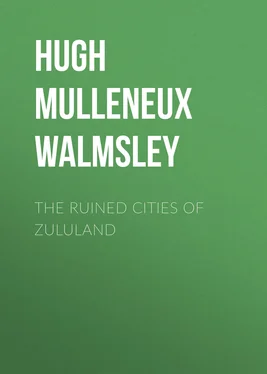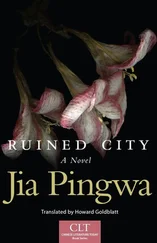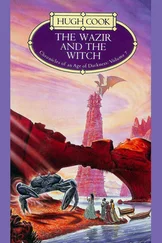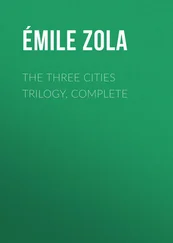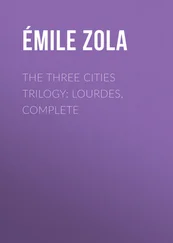Hugh Walmsley - The Ruined Cities of Zululand
Здесь есть возможность читать онлайн «Hugh Walmsley - The Ruined Cities of Zululand» — ознакомительный отрывок электронной книги совершенно бесплатно, а после прочтения отрывка купить полную версию. В некоторых случаях можно слушать аудио, скачать через торрент в формате fb2 и присутствует краткое содержание. Жанр: foreign_prose, История, foreign_edu, foreign_antique, на английском языке. Описание произведения, (предисловие) а так же отзывы посетителей доступны на портале библиотеки ЛибКат.
- Название:The Ruined Cities of Zululand
- Автор:
- Жанр:
- Год:неизвестен
- ISBN:нет данных
- Рейтинг книги:4 / 5. Голосов: 1
-
Избранное:Добавить в избранное
- Отзывы:
-
Ваша оценка:
- 80
- 1
- 2
- 3
- 4
- 5
The Ruined Cities of Zululand: краткое содержание, описание и аннотация
Предлагаем к чтению аннотацию, описание, краткое содержание или предисловие (зависит от того, что написал сам автор книги «The Ruined Cities of Zululand»). Если вы не нашли необходимую информацию о книге — напишите в комментариях, мы постараемся отыскать её.
The Ruined Cities of Zululand — читать онлайн ознакомительный отрывок
Ниже представлен текст книги, разбитый по страницам. Система сохранения места последней прочитанной страницы, позволяет с удобством читать онлайн бесплатно книгу «The Ruined Cities of Zululand», без необходимости каждый раз заново искать на чём Вы остановились. Поставьте закладку, и сможете в любой момент перейти на страницу, на которой закончили чтение.
Интервал:
Закладка:
“I suppose we must find Mozelkatse. Tell Masheesh of our wish, Luji,” said the missionary. He alone of the whole party was mounted, being weak from the effects of fever, and as he spoke, they topped the crest of one of the green ridges so common to the undulating plains bordering the Limpopo, and on passing it the whole party were stopped by the presence, right in their path, of a huge rhinoceros.
He was quietly standing under a tree, apparently studying the landscape, and not seeming to think of the distant noise. At the foot of the tree rose one of those curious structures, the nest of the African ant, while a strange little animal, covered with thickly-plated scales of a yellowish tint, the under part of the belly only being undefended, was busy feeding on the ant-hill. In length the ant-eater was not more than three feet, and it was engaged shooting out its tongue into the heap, which tongue, being covered with some glutinous substance, always returned black with ants. The spot was comparatively quiet, for the time at least, and the rhinoceros did not seem in the least alarmed. He was a huge, heavy, massive creature, of a pale brown colour, carrying two horns, one very long and pointed, the second short, strong, but blunt. The longer one rose just above the tip of the nose, and seemed a most dangerous arm. Above the shoulders was a kind of hump. An uglier brute certainly could not have barred the path which ran towards the river; but the moohoohoo would have been perhaps inoffensive had not Masheesh, confiding, doubtless, in the power of the English rifle, crept towards him, throwing his spear. The weapon struck fairly and well, but glanced from the tough hide as though it had been hurled against a brick wall, and being made of the soft native iron, it literally curled up with the force of the blow. Having thrown his spear, which elicited only a wrathful grunt from the animal, Masheesh bolted, just as the huge mass put itself in motion, advancing straight up the path. Luji and the rest disappeared among the reeds and bushes, but Captain Hughes had just time to fire, the ball glancing from the mailed coat like a child’s marble.
“Look out!” shouted the missionary; but it was too late, and the next moment the unlucky soldier was lying on the ground, with the enormous bulk of the rhinoceros standing over him.
“Lie still, for God’s sake,” cried Wyzinski, as he unslung the heavy rifle, seeing that the animal did not strike at the fallen man. He was just in the act of raising it to his shoulder, when, attracted by the horse, the moohoohoo suddenly charged, the long pointed horn literally burying itself in the pony’s flank, just behind the rider’s leg, the rifle harmlessly exploding as horse and rider rolled over. Not pausing for a second blow, the enraged brute drove on, eventually shambling through the line of natives, who opened their ranks gladly to let him pass.
Rising unwounded, but sorely shaken, Hughes extricated the missionary.
“Are you hurt, Wyzinski?” he asked, anxiously.
“Not a bit,” was the reply; “but look at the poor grey.”
“He is past saving,” answered Hughes; and it was evident it was so, for so frightfully had the sharp horn done its work, that the entrails were hanging out, and the animal fast bleeding to death.
Placing his revolver to the pony’s head, the report rang out; a few convulsive movements, and the carcase of the horse lay still.
“Where is Masheesh?” enquired Hughes, as he returned the smoking weapon to his belt. “If it had not been for his nonsense, that pistol-shot would have been saved.”
Wyzinski had seated himself on the grass, for the whole thing had passed so quickly, that it was difficult to realise the danger.
Slowly stalking out of the bushes, Masheesh, as though nothing had happened, gravely walked to the foot of the tree, took up the ant-eater which, alarmed at the noise, had rolled itself up like a hedgehog, and brought it to where the missionary was seated.
“What on earth does he want with that hedgehog?” asked Hughes. The Matabele, speaking quickly, and in an excited voice, looked up at the missionary as he did so, pointing to the little animal.
“He says it is a great prize,” returned the other, “and consoles him for the loss of his spear. It appears that these ant-eaters are scarce, and the possession of one guarantees its owner against loss or sickness among his cattle.”
“The loss of his cattle! He nearly lost our lives for us, confound him,” replied Hughes, with some show of humour. “He don’t seem to think of that.”
“A native never does, it is not in their nature, and life is held very cheap. Look at yonder group moving over the plain in a line with that stunted acacia. The king Mozelkatse must be among them.”
“Can you walk, do you think, Wyzinski?”
“Oh, yes. I’m a good deal shaken, but that will wear away. Let us join the king.”
The rifles were loaded, and the whole party moved off once more, leaving the carcase of the grey pony lying in a pool of blood where it had fallen, to become a prey to the jackals and hyenas, those scavengers of the African plains.
Mozelkatse, in a state of nudity nearly as complete as that of his subjects, was in high good humour, and welcomed them warmly. The hunt, he told them, promised well, and a vast number of deer of all kinds were hemmed in between the horns of the living crescent. He motioned them to take their places by the side of the trap, or barricade, into which the herds were to be forced. Masheesh temporarily left them to place his prize, the ant-eater, in safety; and as the line of beaters was still far distant, there was ample time to examine the stockade.
The whole was something like a lobster-trap without a top, or like one of the salmon weirs to be found running out into the sea on the Welsh coast. It was made of stout branches driven deeply into the ground, with lighter ones interlaced horizontally between the upright poles. The opening was at least fifty paces in breadth, gradually narrowing, and as the horns of the living crescent drew inwards, it was the only outlet for the frightened game. It led to a deep square pit, which must have taken the tribe long to dig, whose sides were quite smooth and perfectly steep. Once in it, the deer could not get out, and towards this all the game was being driven. The process was a slow one, and it was afternoon before the long line of the Matabele approached. It was a curious sight. The shouts, screams, and yells of the men as they drove before them antelopes of all kinds, and then the excitement of those near the trap, as herd after herd would come down, find the barricade, and, suspecting danger, turn back. At first the different animals kept to themselves, but as the circle narrowed, quaggas, zebras, antelope of various forms would become mixed together, while the Matabele would rush among them, brandishing their long spears, and frantically striking their ox-hide shields, shrieking, howling, and spearing right and left, until the affrighted wretches, surrounded on every side by the yelling savages, took the only outlet left them, and dashing madly down the path between the stockades, leaped wildly into the pit, falling pell mell in. On they came, quaggas, koodoos, springbok, hartebeest, the shouting and spearing becoming wilder. Hundreds turned, and forced their way through the ever narrowing circle of yelling Matabele, the spears sticking in their bloody hides, while fuller and fuller became the pit, until it was heaped with the dead, dying, and maimed. There was the ferocious-looking gnu, the painted hide of the zebra, the graceful-limbed springbok, the long spiral horned leche, all heaped together in one boiling, seething mass of pain and suffering, the Matabele above, with savage cries, spearing those who in their agony tried to climb the sides of the pit, while still the yelling savages continued driving herd after herd, until, like the fire worshippers’ trap, in Moore’s beautiful poem, the pit was full and would hold no more. There was high feasting in the Matabele camp that night, for the hunt had been most successful, and the slaughter immense; but it was with feelings of pleasure the travellers had a farewell interview with Mozelkatse, and then passing among the dancing, singing savages, took their way across the plain, lighted by a brilliant moon, to their quiet camp by the side of the Limpopo.
Читать дальшеИнтервал:
Закладка:
Похожие книги на «The Ruined Cities of Zululand»
Представляем Вашему вниманию похожие книги на «The Ruined Cities of Zululand» списком для выбора. Мы отобрали схожую по названию и смыслу литературу в надежде предоставить читателям больше вариантов отыскать новые, интересные, ещё непрочитанные произведения.
Обсуждение, отзывы о книге «The Ruined Cities of Zululand» и просто собственные мнения читателей. Оставьте ваши комментарии, напишите, что Вы думаете о произведении, его смысле или главных героях. Укажите что конкретно понравилось, а что нет, и почему Вы так считаете.
